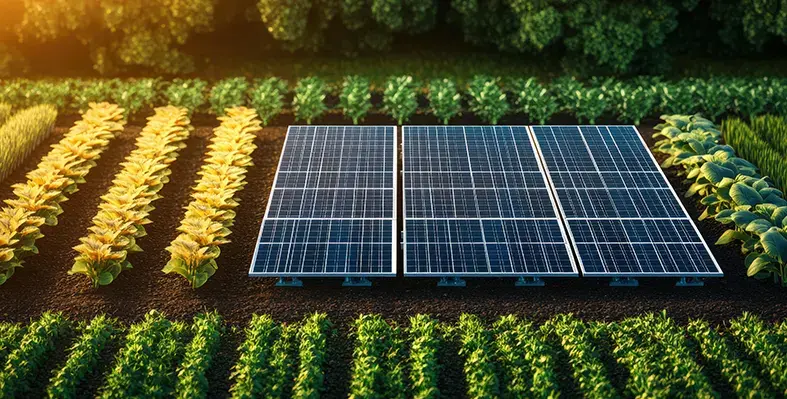The Federal Government has pledged its support for agrivoltaic farming as a way to increase both food and energy production across Nigeria.
This was announced by Uche Nnaji, the minister of innovation, science and technology, during the first International Agrivoltaics Workshop held in Abuja.
The event also featured the unveiling of a new book titled “Democratising the Sun: Agrivoltaics and the Future of Farming in Nigeria and Africa.” It was organised by the LIFEWS Foundation (Lichipu for Food, Energy and Water Sustainability) in collaboration with the University of Abuja and with support from researchers at Oregon State University in the United States.
Agrivoltaics, also called agrisolar, involves combining crop farming with solar panel installation on the same land. Crops are grown beneath or around the solar panels, making it possible to produce food and energy side by side.
Nnaji described the workshop and book launch as examples of the kind of innovation-led, climate-smart, and community-focused strategies his ministry is encouraging. He said this method fits into the ministry’s broader vision of using science and technology to promote national development, improve competitiveness, and support environmental sustainability.
According to the Nnaji, agrivoltaic farming offers several practical benefits for farmers. It can improve crop yields by creating moderated microclimates, reduce water loss through evapotranspiration, and make irrigation more efficient.
He also praised the book’s authors and partners for their efforts in introducing agrivoltaic technology to Nigeria and noted that his ministry is promoting the local development and production of solar-powered agricultural technologies.
Nnaji reaffirmed the government’s commitment to supporting innovative, climate-resilient technologies like agrivoltaics, which can be scaled to reach more rural communities and help transform farming in the country.
Gabriel Ayayia, founder of the LIFEWS Foundation and author of the book, explained that agrivoltaics represents a shift in farming methods towards more sustainable and self-reliant food production.
“What we are promoting today is a new way of farming, which is climate-smart agriculture, climate-smart farming. So, instead of just farming in the traditional way, we are thinking of reimagining agricultural practices,” Ayayia said.
The workshop highlighted agrivoltaics as a promising solution to improve food sovereignty, boost energy access, and support climate adaptation efforts. Stakeholders agreed that wider adoption of this system could help Nigeria build a more resilient and sustainable agricultural sector in the years ahead.





